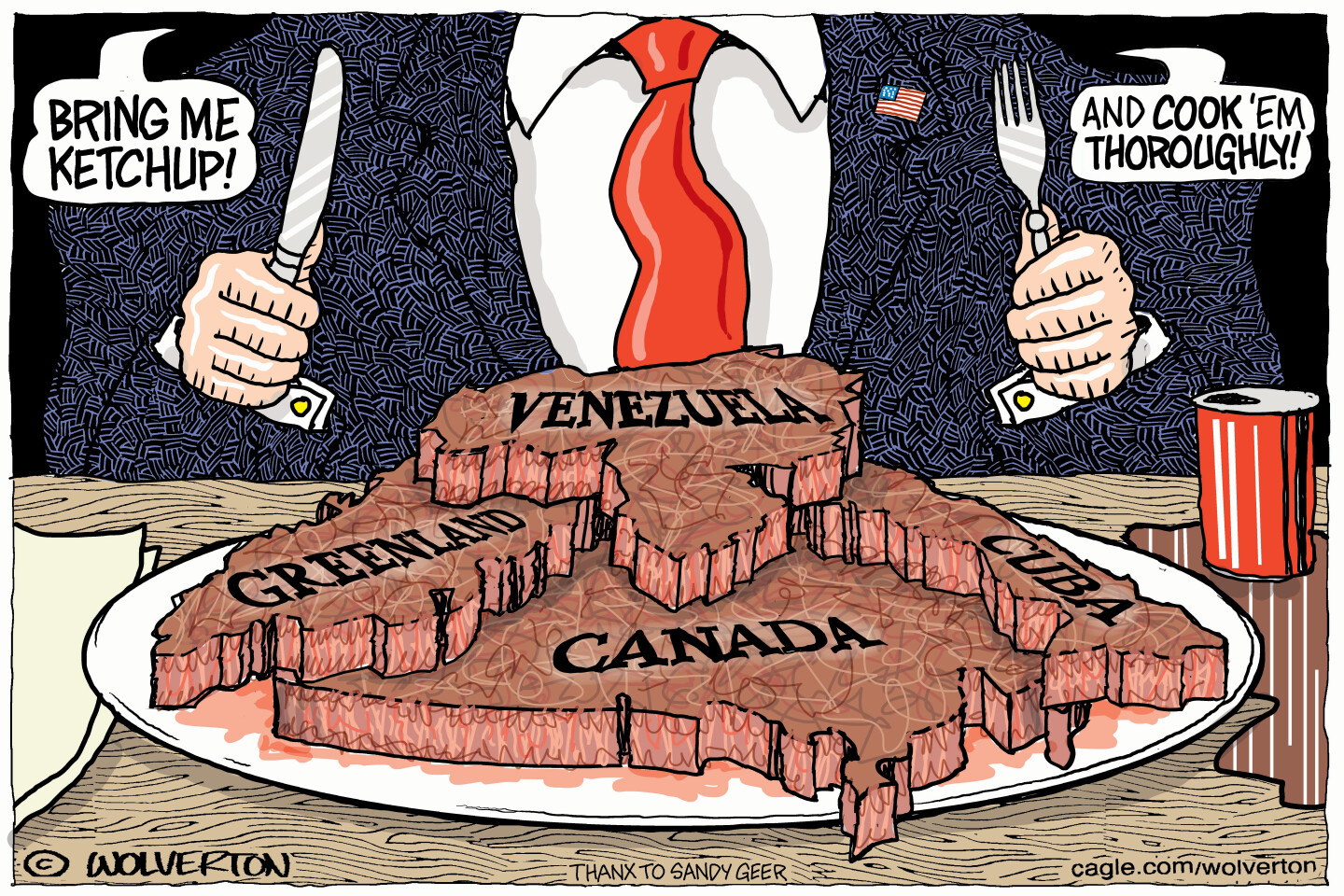Make government simple again
An easier, less stressful life is possible


One of the signature features of modern life is stressing out over paperwork. Some of it probably can't be avoided (buying a car, for instance) but a lot — especially anything connected with government programs — unquestionably could.
That hassle and stress is to a great degree the result of the pointless and counterproductive complexity built into nearly every government program. In the future, let us make government simple — reforming programs to make life easier instead of more burdensome.
The signature government-related experience for the average citizen is filing one's taxes, and it's a gigantic pain in the neck. It doesn't have to be. For the overwhelming majority of citizens, the IRS already has all your income data. They could send you a completed tax return you could check for errors and then send back — like many wealthy countries do. It would be easy and cheap.
The Week
Escape your echo chamber. Get the facts behind the news, plus analysis from multiple perspectives.

Sign up for The Week's Free Newsletters
From our morning news briefing to a weekly Good News Newsletter, get the best of The Week delivered directly to your inbox.
From our morning news briefing to a weekly Good News Newsletter, get the best of The Week delivered directly to your inbox.
But that's only for starters.
Take education. For most children from K-12, people pay into a universal public school system. But when it comes to college, we have partially government-supported schools, topped up with a hellish maze of subsidized loans and grants, and the world's dumbest tax-advantaged savings account for parents. How about decent public and community college (where the vast majority of students go) paid for with taxes?
Retirement is a similar problem. We load tons of responsibility on individuals, who are supposed to use tax-advantaged accounts like the 401(k) to save and invest in one of a slew of complicated mutual fund plans. Unsurprisingly, it does not work for most people. Instead it mainly fuels a cottage industry of swindlers who trick people into high-fee plans. How about instead we expand Social Security, paid for with taxes?
Or take health care. The whole health-care industry could not possibly exist without the elaborate network of government regulations, subsidies, and programs that backstop it at every point. Yet the amount of complexity this system dumps on the citizenry is simply brain-melting.
A free daily email with the biggest news stories of the day – and the best features from TheWeek.com
About half the country has insurance through an employer — the creation of a huge government tax subsidy. Even when private insurance is pretty good, simply accessing care is often a terrific hassle. You've got to make sure you've got the right sub-sub program (BlueCard PPO/EPO? Or PPO Basic? Or Traditional?), and then find a provider that takes the insurance. Then, assuming you're not bleeding out, you'd be well-advised to make sure the provider doesn't contract with out-of-network specialists, because they probably won't tell you on their own. After you've received care, then you can look forward to the inevitable fight between you, the insurance company, and the provider over who is going to pay the outrageously inflated prices.
Health Savings Accounts (HSAs) are even more obnoxious. Josh Barro detailed the experience of using one of these, only to get his money cut off after finding out that he was supposed to be uploading receipts from certain providers into some website. Instead, he had thrown them away:
Anyway, now I have to call those providers' offices and get duplicate receipts and upload them and allow seven to 10 days for processing. Until I do that, I have been cut off from access to the money in the account — my own money — that got in the account only because Congress chose to offer a tax preference that I could get only by using such an account.Who wants to deal with this crap? [Business Insider]
Or take Medicaid. This is certainly simpler than most private insurance, especially when it comes to payment. But determining your eligibility for the program is a nightmare in most states. It may depend on whether the state took the ObamaCare Medicaid expansion, your income, your family size, whether you are disabled, and other facts. That's a big part of why many people who are eligible don't even realize it.
Even Medicare has been larded up with all manner of unnecessary garbage over the years. There are four different parts to it: Part A and B, which cover most usual medical services; Part C (or Medicare Advantage) which gives four different sub-options (HMO, PPO, fee-for-service, or special needs) to get Part A and B through a more expensive private vehicle; and Part D, which covers prescription drugs. Then there are various premiums and deductibles, depending on one's income and whether you're also eligible for Medicaid.
Finally there are, of course, a zillion exceptions and qualifiers, especially around vision and dental coverage. Companies sell "Medigap" policies to plug some of these holes.
There is no real point to any of this nonsense. It's just neoliberal cruft that's built up over the years. For reasons of simplicity, I have often referred in articles to a national single-payer plan as "Medicare for all." But if we really were to do such a national plan, all those various sub-programs would be trashed, and everyone would be enrolled in a single simple program that covers all necessary medical treatment with no cost-sharing, period.
The expectation behind this horrible situation seems to be that everyone needs to "take responsibility" for every part of their lives, and become a hobbyist in investing, tax law, medical billing, and so forth. But there's no shame whatsoever in paying taxes to offload all those tasks onto the government. I for one have better things to do than fill out forms until my retinas bleed.
Ryan Cooper is a national correspondent at TheWeek.com. His work has appeared in the Washington Monthly, The New Republic, and the Washington Post.
-
 How to rekindle a reading habit
How to rekindle a reading habitThe Week Recommends Fall in love with reading again, or start a brand new relationship with it
-
 Political cartoons for January 8
Political cartoons for January 8Cartoons Thursday’s political cartoons include a well-done steak, a silenced protester, and more
-
 US nabs ‘shadow’ tanker claimed by Russia
US nabs ‘shadow’ tanker claimed by RussiaSpeed Read The ship was one of two vessels seized by the US military
-
 The billionaires’ wealth tax: a catastrophe for California?
The billionaires’ wealth tax: a catastrophe for California?Talking Point Peter Thiel and Larry Page preparing to change state residency
-
 Bari Weiss’ ‘60 Minutes’ scandal is about more than one report
Bari Weiss’ ‘60 Minutes’ scandal is about more than one reportIN THE SPOTLIGHT By blocking an approved segment on a controversial prison holding US deportees in El Salvador, the editor-in-chief of CBS News has become the main story
-
 Has Zohran Mamdani shown the Democrats how to win again?
Has Zohran Mamdani shown the Democrats how to win again?Today’s Big Question New York City mayoral election touted as victory for left-wing populists but moderate centrist wins elsewhere present more complex path for Democratic Party
-
 Millions turn out for anti-Trump ‘No Kings’ rallies
Millions turn out for anti-Trump ‘No Kings’ ralliesSpeed Read An estimated 7 million people participated, 2 million more than at the first ‘No Kings’ protest in June
-
 Ghislaine Maxwell: angling for a Trump pardon
Ghislaine Maxwell: angling for a Trump pardonTalking Point Convicted sex trafficker's testimony could shed new light on president's links to Jeffrey Epstein
-
 The last words and final moments of 40 presidents
The last words and final moments of 40 presidentsThe Explainer Some are eloquent quotes worthy of the holders of the highest office in the nation, and others... aren't
-
 The JFK files: the truth at last?
The JFK files: the truth at last?In The Spotlight More than 64,000 previously classified documents relating the 1963 assassination of John F. Kennedy have been released by the Trump administration
-
 'Seriously, not literally': how should the world take Donald Trump?
'Seriously, not literally': how should the world take Donald Trump?Today's big question White House rhetoric and reality look likely to become increasingly blurred
